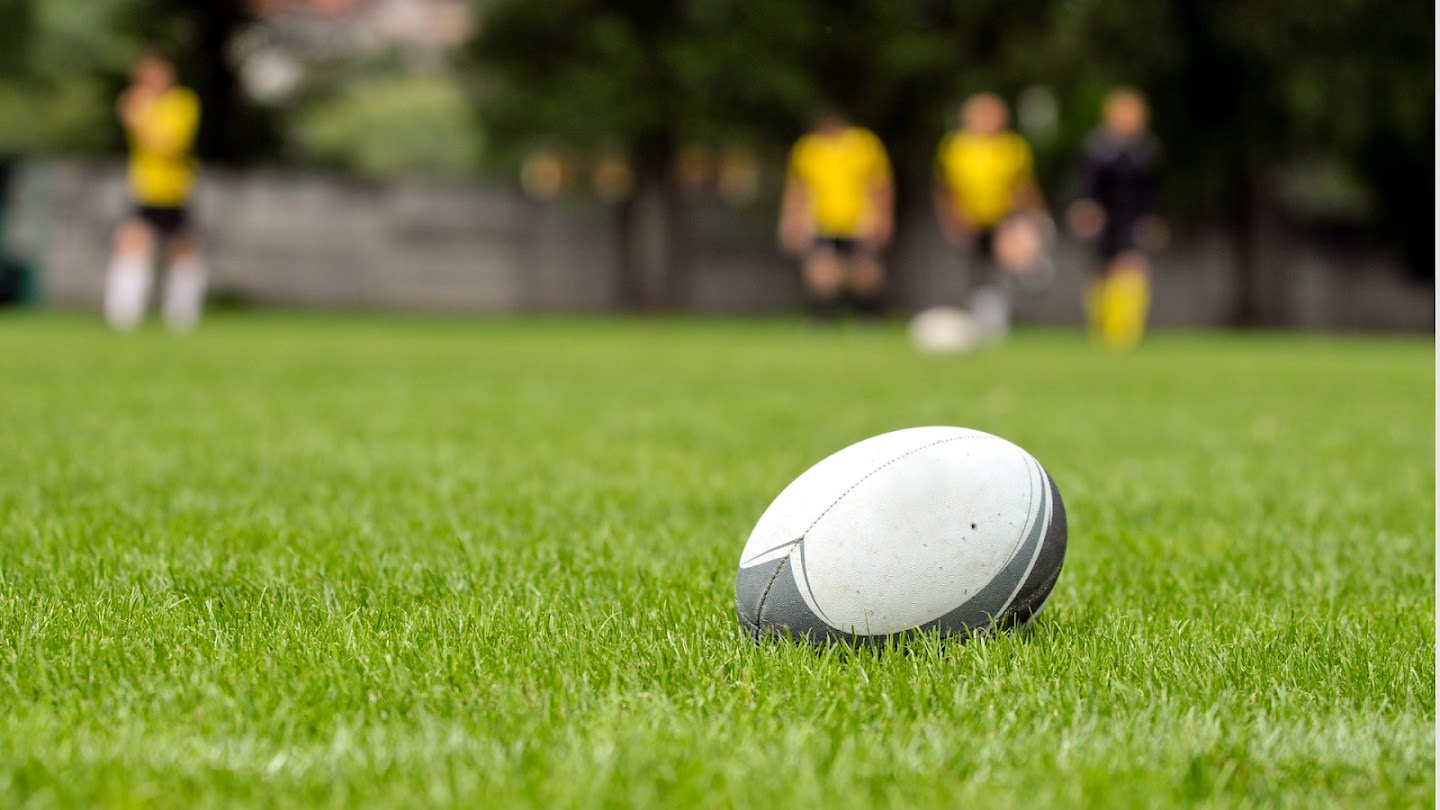
Concussions, which are caused by head impacts, are the most common injury in rugby union. These injuries can have many effects on both players and affect cognitive function. Fortunately, there are ways to reduce your risk. We have provided a few tips to help protect you from head injuries.
Concussions in rugby are the most common form of match injury.
Concussions are serious brain injuries that can cause dizziness, confusion and loss of consciousness. While the exact cause of concussions remains unknown, head impacts have been shown to increase brain health risk. Many head impacts cause concussions, but not all. The Drake Foundation funded a study that found professional rugby players had more risk for concussion.
The incidence of concussions increased dramatically in the 2010-11 season. The number of concussions per 1000 hours of play increased by nearly two per every 25 matches to 22.2 in the 2010-11 season. This was almost three times the rate of the previous season. World Rugby agreed that the minimum standing-down time for elite concussion players should be increased to 12 days.

They can be caused by head impacts
Head injuries caused by rugby tackles are common in rugby. These impacts are not absorbed immediately and cause a shock to the brain. This causes confusion and memory loss, dizziness, as well as loss or loss of consciousness. Rugby players are increasingly concerned about this injury.
Head injuries are a common occurrence in rugby. But they aren't the only danger. CTE is a risk in rugby, and it should be checked at least twice per year.
They have a different effect on women than they have on men
While rugby is a sport that men and women alike enjoy, head injuries to women are often more severe than in men. A head injury to a woman is less common in women than for men. This research demonstrates the differences between the sport and gender. Head injuries to women can be caused by collisions between a player's knee and the ground. These findings are especially concerning for women involved in competitive rugby.
Swansea University in Wales employed mouthguards equipped with sensors to measure head speed. This was done to discover the causes of head injuries in rugby.

They impact cognitive function
Recent studies have examined whether head injuries suffered by rugby players have an effect on their cognitive function. A prospective cohort study of ex-england rugby union players examined whether concussion could affect cognitive function. The BRAIN Q tool was used for recording concussion exposure. The primary outcome measure was Preclinical Alzheimer Cognitive Composite. After adjusting to confounders and other factors, the researchers discovered an association between PACC score and concussion.
Researchers at Imperial College London carried out the study. It featured 44 elite rugby athletes and was published on the journal Brain Communications. They focused on brain tissue changes and specifically white matter. White matter is what makes up the brain's wiring. These changes may have long-term effects on brain connections. However, more research needs to be done to determine whether head injuries in rugby will affect a player's cognitive function.
FAQ
Is extreme sport dangerous?
Extreme sports present dangers because they expose people to serious injury and death. There have been many deaths due to other causes such as drowning, electrocution and car accidents.
Even when you do something quite safe, such as riding a bike or rollerblading - injuries can still occur.
Extreme sports can be dangerous for those who sustain injuries.
One example is that the National Football League has banned its players participating in extreme sports such as skateboarding due to the high risk associated with these sports.
Do not attempt extreme sports without first ensuring that you and your friends are safe.
How does an extreme sport differ from regular sports?
Extreme sport is a combination of physical exertion, skill, and a challenge.
It could also include equipment such as goggles, helmets, or special clothing.
Extreme sports are not like traditional sports that require training. They test your ability to perform under stress.
They are typically outdoors and don't offer any safety net in the case of an accident.
Some extreme sports can be considered illegal while others may be legal. It all depends on where you live, and the type of activity that you are involved in.
Check the local laws before undertaking extreme sports.
Who is interested in extreme sports and who doesn't?
Extreme sports can be enjoyed by anyone who wants to experience something new. You can choose to learn more about the sport or compete with other people.
There are many options for activities. Some involve jumping off a cliff. Others require you to ride a bicycle long distances. Others include skiing or snowboarding.
Some extreme sports require specialized skills. Skydiving, for example, requires that you have the proper training before jumping out of an aircraft. Parachuting takes practice.
Extreme sports are popular among young people. They are often used as a way to enjoy nature. They are also very popular with athletes who work hard for their performance.
How does the sport of parasailing differ from parachuting?
Para-gliding is a form of flying above ground using a harness and a small sail. The harness allows you to fly. It keeps you safe when you're falling through the air.
Flying is easy with no equipment. Attach yourself to the sail. Then you take off. As you gain altitude, the wind pushes against the sail. This forces the sail to lift you.
You keep moving forward, as you glide along ground. Your momentum carries you forward until you reach the end of the cable. You release your grip at that point and return to the earth.
Reattach your sails when you're ready for a new start.
Parasailing is rapidly growing. Parasailing attracted more than 1,000,000 participants in 2013. It was almost double the number that did so in 2008.
Statistics
- Nearly 40% of all mountain bikers have at least graduated from college. (momsteam.com)
- Nearly 98% of all "frequent" roller hockey participants (those who play 25+ days/year) are male. (momsteam.com)
- Overall participation has grown by more than 60% since 1998 - from 5.9 million in 1998 to 9.6 million in 2004 Artificial Wall Climbing. (momsteam.com)
- Based on the degree of difficulty, the routine is scored on form and technique (50 percent), takeoff and height (20 percent), and landing (30 percent). (britannica.com)
- Nearly 30% of all boardsailors live in the South, and more than 55% of all boardsailors live in cities with a population of more than two million people (momsteam.com)
External Links
How To
How Can I Learn To Skateboard?
Skating involves using your feet to move on snow and ice. You can do this either by yourself or with friends. It is a sport that requires balance and coordination. First, you must learn how to stand on the board. Next, practice balance while moving forward or backward. Next, you can try jumping from steps or ramps. Once you've mastered these skills, you'll find yourself skating faster and farther than ever before!
These tips will help you get started if you want to learn how to skate.
-
It is important to determine the type of skates that you are looking for. There are many different types of skates like inline skates or roller blades. Speed skates, figure and speed skates are all available. The type of skill you have will determine which skates you should purchase. Speed skates, inline skates and roller blades are all great options if you're just beginning to learn. Figure skaters usually prefer to buy boots that provide support during their performance.
-
Buy proper equipment. The gear you choose will depend on whether or not you are participating in competitions. Make sure your skates are comfortable, fit well, have excellent stability, and are made from durable materials if you plan on competing.
-
Try out new tricks. Learning any skill takes practice. You don't have to wait for a trick you know before you can try it. Instead, learn simple moves such as walking backwards, sliding sideways, spinning and so on. This will make it easier to master difficult maneuvers later.
-
Keep learning. Don't expect to become skilled overnight. The best skaters spend a lifetime perfecting their art. And they never stop improving. Remember that there are many methods to improve your technique. You could take lessons at your local rink, sign up for a recreational league, or watch videos online.
-
Be patient. If you're still having trouble mastering a tricky maneuver, don't worry. Keep practicing. You will eventually gain the confidence necessary to perform advanced stunts.
-
Have fun. Skating is great for beginners, as it doesn't require expensive equipment and requires little training. It's also very enjoyable!